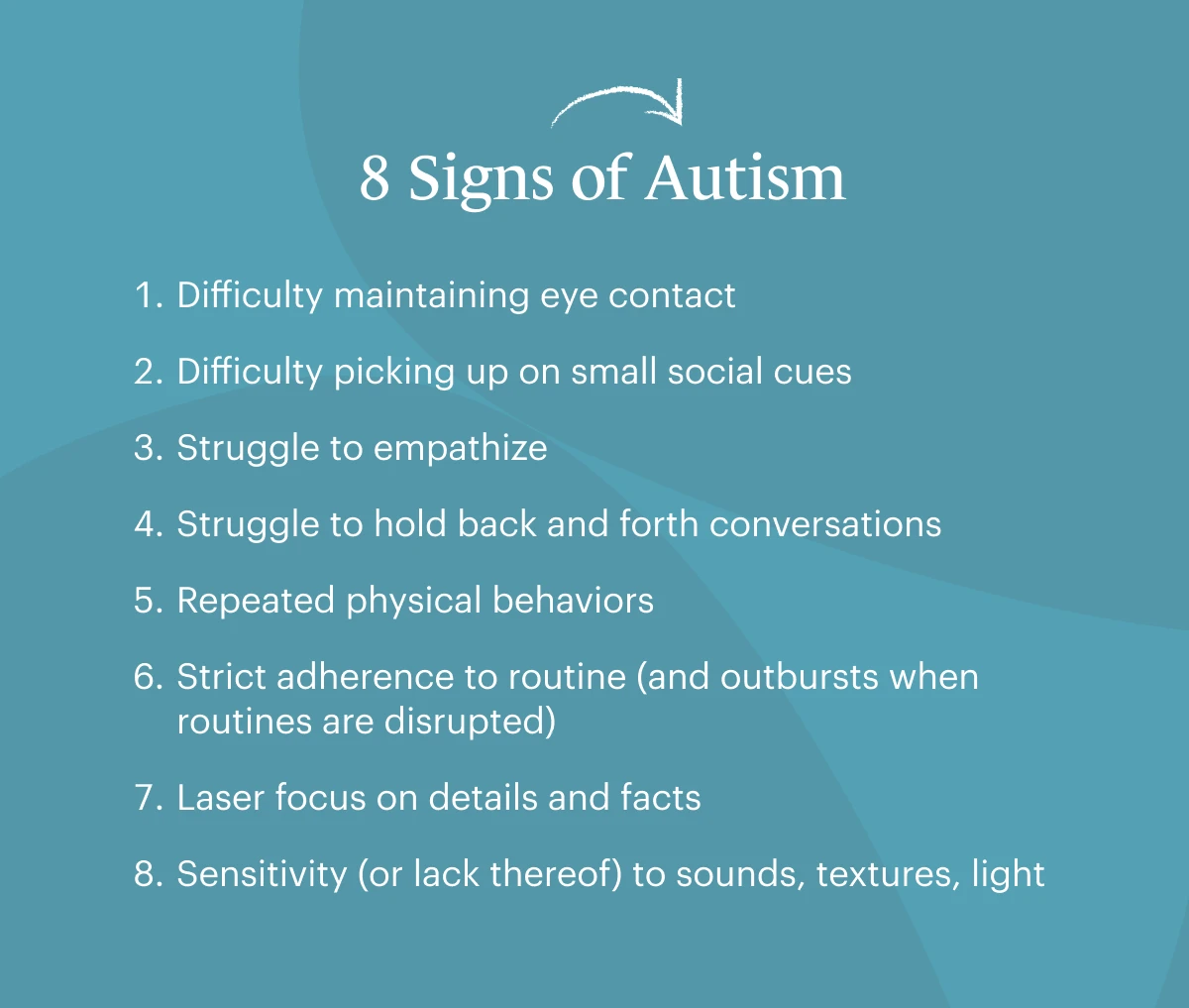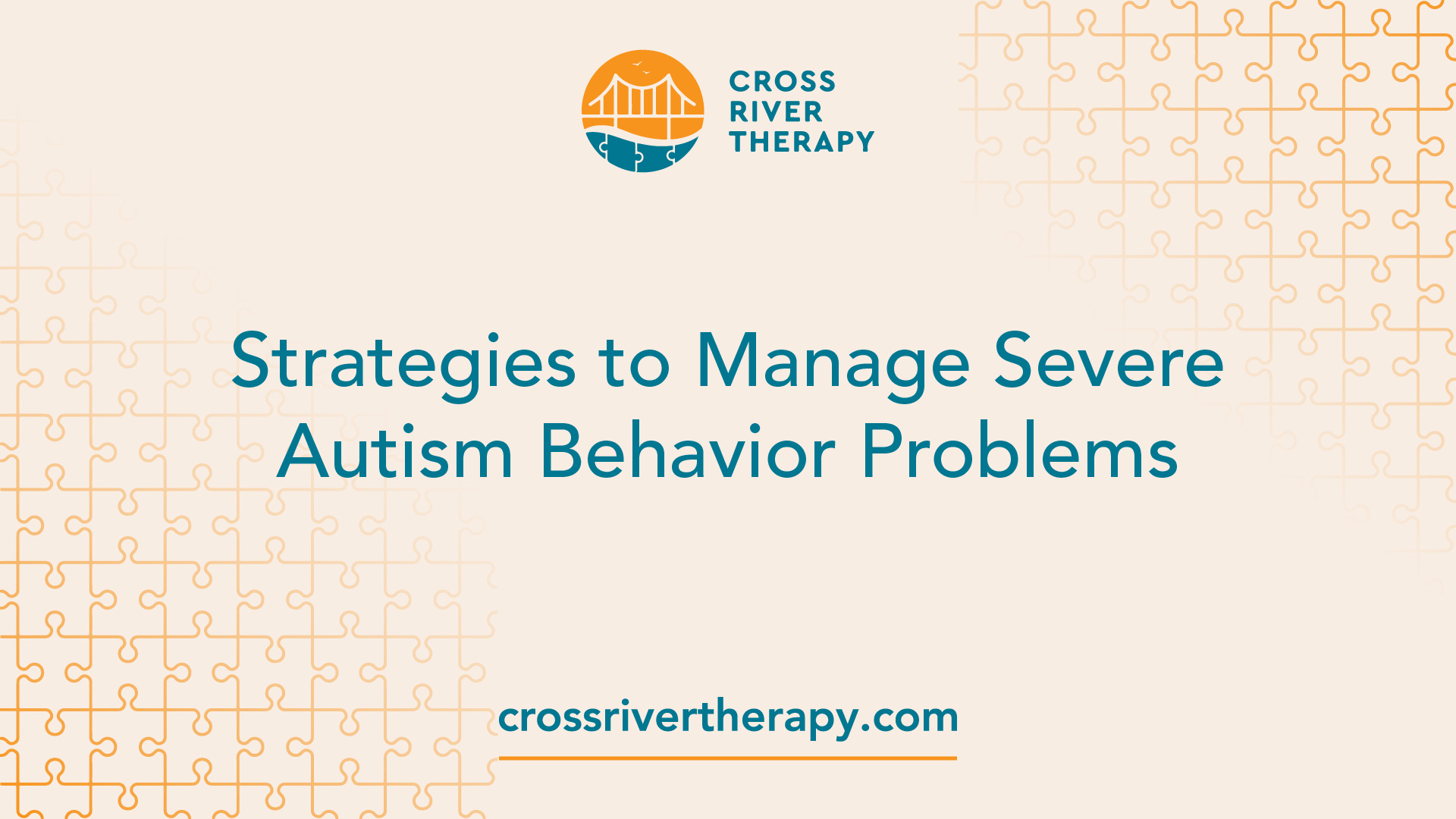Key Symptoms And Signs to Acknowledge in Individuals With Behavioral Autism
When you experience someone with behavioral autism, recognizing key symptoms and signs is important. You might discover challenges in social communications and interaction, along with a solid requirement for routines. Additionally, sensory sensitivities can lead to frustrating experiences. Recognizing these qualities can improve your support and interventions, yet there's even more to discover about how these behaviors show up in daily scenarios. Allow's discover what these indicators truly resemble.
Obstacles in Social Interactions
When you interact with a person on the autism spectrum, you may see they have a hard time with social signs and communication. These obstacles can make social interactions really feel frustrating for them.
Furthermore, you might find that they like regimens and familiar settings, which can limit their desire to participate in brand-new social circumstances. They might speak concerning their interests in terrific information without noticing if you're interested when they do engage. This can cause discriminatory conversations that leave you feeling separated. Comprehending these difficulties can aid you come close to interactions with empathy and persistence, promoting an extra comfy setting for both of you.
Difficulty With Verbal and Non-Verbal Communication

Non-verbal interaction can be a lot more difficult. You could see a lack of eye contact or restricted use motions, which can make interactions really feel uncomfortable. Facial expressions might not constantly line up with the discussion, causing confusion regarding their sensations. Acknowledging these indicators is necessary, as it helps you much better support and engage with people on the autism spectrum. By comprehending their interaction difficulties, you can cultivate more purposeful links and supply an extra encouraging atmosphere.
Repeated Habits and Regimens
Interaction challenges commonly come with other signs of autism, such as repeated habits and a strong preference for routines. You may see that people with autism frequently take part in certain, repetitive activities, like hand-flapping, shaking, or repeating phrases. These behaviors can offer comfort and a sense of control in an usually frustrating globe.
Regimens are equally important; numerous individuals prosper when they comply with an organized timetable. You might locate that adjustments to these regimens can bring about substantial distress. As an example, if they have a day-to-day routine of consuming morning meal at a details time or adhering to a certain route to college, any type of disturbance can trigger anxiousness.
Acknowledging these patterns helps you understand their actions and supply support. By accommodating their demand for routine and allowing recurring actions, you can create an extra comfortable environment that reduces their difficulties.
Sensory Sensitivities

Common Sensory Triggers
Sensory level of sensitivities can considerably affect life for individuals with autism, as specific stimulations typically cause overwhelming responses. Typical sensory triggers include loud sounds, intense lights, and solid scents. You may see that sudden audios, like alarm systems or alarms, cause stress and anxiety or distress. In a similar way, fluorescent lighting in stores can really feel rough and unpleasant. Textures can additionally play a substantial role; rough fabrics or specific food structures might be excruciating for you. In addition, crowded areas can bewilder your senses, making it hard to unwind or focus. Comprehending these triggers can assist you handle your atmosphere much better. By understanding what influences you, you can take actions to decrease pain and boost your day-to-day experiences.
Behavior Actions Clarified
Recognizing your behavior actions to sensory sensitivities is important, as they frequently reveal just how you connect with the globe. You may discover that certain audios, lights, or appearances overwhelm you, resulting in anxiety or pain. When faced with these stimuli, you could withdraw, cover your ears, or perhaps respond strongly. These responses aren't simply peculiarities; they're your way of dealing with overstimulation. You may additionally discover yourself looking for particular sensory experiences, like deep stress or peaceful environments, to aid ground yourself. Identifying these patterns assists you comprehend your demands much better and can guide exactly how you communicate them to others. By recognizing your sensory sensitivities, you can function towards producing an environment that feels more comfy and manageable for you.
Coping Strategies Introduction
Acknowledging your sensory level of sensitivities is just the first step; now it's time to explore coping strategies that can help you manage those experiences site here effectively. Start by developing a sensory toolkit customized to your demands. Developing a structured routine can also give predictability, lowering anxiousness around sensory overload.
Restricted Interests and Emphasis
While lots of individuals develop a wide array of rate of interests, those with autism typically demonstrate limited passions and an intense focus on specific subjects. You may see that someone with autism can invest hours delving right into their favorite subject, whether it's a certain type of train, a specific flick, or a scientific concept. This extreme focus isn't simply a hobby; it can come to be a central component of their identity and social communications.
You might find that discussions focus on these passions, and they may battle to engage in more comprehensive topics. For them, these concentrated interests give comfort and a feeling of mastery. While it is essential to encourage expedition of new topics, respecting their passions is equally crucial. By comprehending and recognizing these restricted passions, you can foster a helpful environment where they really feel valued and recognized, enabling for even more meaningful connections and communications.
Psychological Law Difficulties
People with autism typically encounter obstacles in psychological guideline, which can be affected by their extreme concentrate on certain rate of interests. You may discover that when an individual is deeply participated in a recommended task, they can experience strong emotions, whether excitement or frustration. When things don't go as intended., this intensity sometimes makes it tough for them to move gears or handle their sensations - Aba Therapist.

Variability in Developing Landmarks
When it comes to developmental milestones, you'll notice that individuals with autism frequently show a broad array of variability. You may see a youngster excel in language skills but battle with social communications.
It's necessary to identify that each person's journey is distinct. Observing these patterns can aid you recognize their staminas and needs much better.
Regularly Asked Inquiries
Exactly How Is Autism Diagnosed in Kid and Adults?
To diagnose autism in youngsters and grownups, experts assess actions, interaction skills, and social communications. They usually utilize standardized examinations, interviews, and monitorings to figure out if an individual fulfills the requirements for autism range condition.
Are There Various Types of Autism Range Disorders?
Yes, there are different sorts of autism range conditions, consisting of Asperger's syndrome and prevalent developmental disorder-not otherwise defined. Each type differs in severity and attributes, so comprehending these distinctions can assist you far better support people with autism.
What Treatments Work for Individuals With Autism?
When taking into consideration efficient treatments for people with autism, you'll discover choices like more info here Applied Actions Analysis, speech therapy, and job-related therapy. Each technique can aid improve communication, social abilities, and day-to-day functioning tailored to private demands.
Can Individuals With Autism Lead Independent Lives?
Yes, individuals with autism can lead independent lives. With the ideal assistance, abilities training, and resources, you can help them establish self-sufficiency, manage day-to-day tasks, and grow in different environments, promoting their freedom.
Just How Can Families Support Enjoyed Ones With Autism?
You can sustain your enjoyed ones with autism by developing a structured environment, motivating their rate of interests, exercising perseverance, cultivating interaction, and advertising social abilities. Commemorate their success, despite how small, and construct an encouraging area.
Although several people on the autism range can use and recognize language, they frequently face significant challenges with both verbal and non-verbal interaction. Identifying these indicators is crucial, as it aids you far better assistance and engage with individuals on the autism spectrum. You could see that people with autism commonly engage in particular, repeated actions, like hand-flapping, shaking, or duplicating phrases.Sensory sensitivities can considerably impact day-to-day life for people with autism, as specific stimuli frequently set off overwhelming reactions.When it comes to developing landmarks, you'll observe that people with autism often show a wide array of variability.